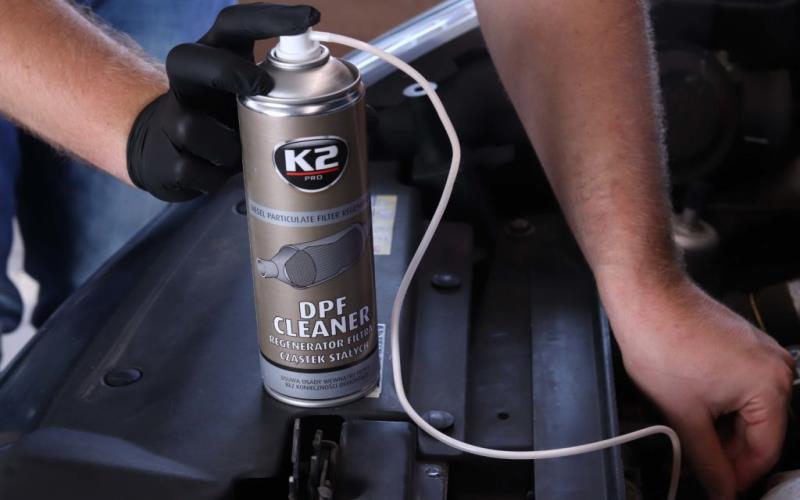
DPF cleaning, or the process of cleaning Diesel Particulate Filters, is essential for maintaining the performance and efficiency of diesel engines. However, it is crucial to follow certain precautions to ensure the safety of individuals involved in the cleansing process and to prevent potential risks. This article will discuss several precautions that should be considered when performing DPF cleansing, covering aspects such as personal protective equipment, proper handling of chemicals, and safe working conditions.
Personal Protective Equipment (PPE)
Wearing appropriate Personal Protective Equipment (PPE) is vital during DPF cleansing to safeguard individuals from potential hazards. The following PPE should be worn:
-
Gloves
Disposable gloves protect the skin from direct contact with chemicals or contaminants during cleansing. Nitrile or latex gloves are commonly used and should be worn throughout cleaning.
-
Eye Protection
Safety goggles or a face shield must be worn to protect the eyes from chemical splashes or any particles that may be dislodged during the cleansing process.
-
Respiratory Protection
A respiratory mask may be necessary to prevent inhaling harmful particles or chemical vapors depending on the cleaning method and products used. Selecting the appropriate mask based on the specific cleaning chemicals and following the manufacturer’s recommendations is essential.
Proper Handling of Chemicals
DPF cleaning often involves the use of specialized cleaning agents. To ensure safety, the following precautions should be taken:
-
Read and Follow Instructions
Carefully read and understand the instructions provided by the manufacturer of the cleaning agents. Follow the recommended guidelines for dilution, application, and handling of the chemicals.
-
Ventilation
Work in a well-ventilated area to prevent the buildup of chemical fumes or vapors. If working indoors, ensure proper airflow or use local exhaust ventilation systems to remove any potentially harmful substances from the work area.
-
Chemical Compatibility
Be aware of the compatibility of the cleaning chemicals with the DPF and other components. Some cleaning agents may contain corrosive or reactive substances that can damage the filter or other engine parts if used incorrectly.
-
Containment and Disposal
Collect and appropriately contain spilled or leftover chemicals. Follow local regulations to safely dispose of cleaning agents and ensure they do not contaminate the environment.
Safe Working Conditions
Maintaining a safe working environment is crucial during DPF cleansing. Consider the following precautions:
-
Engine Shutdown
Before starting the cleaning process, ensure that the engine is shut down and has cooled sufficiently to avoid any risk of burns or injuries from hot components.
-
Secure the Vehicle
Safely park and secure the vehicle to prevent unintended movement during cleaning. Use wheel chocks or other appropriate methods to immobilize the vehicle.
-
Lockout/Tagout
If accessing internal engine components or removing the DPF, follow proper lockout/tagout procedures to prevent accidental engine start-up and ensure personnel safety.
-
Fire Safety
Have fire extinguishing equipment readily available for accidental fires. Avoid working near flammable materials and take necessary precautions to prevent ignition sources.
-
Training and Certification
Ensure that individuals performing DPF cleansing are adequately trained and certified. Proper training minimizes the risk of errors or accidents during the cleansing procedure.
Manufacturer Guidelines
Always refer to the manufacturer’s guidelines and recommendations for DPF cleansing. Each DPF may have specific requirements and procedures that should be followed to ensure effective and safe cleaning. Adhering to these guidelines will help maintain the warranty and performance of the DPF.
DPF cleaning is a critical process for maintaining the efficiency and longevity of diesel engines. By following proper precautions, individuals involved in the cleansing process can minimize risks and ensure their safety. Appropriate PPE, handling chemicals, adherence to safe working conditions, and compliance with manufacturer guidelines are essential to avoid potential hazards. Taking these precautions protects individuals involved in the cleansing process and contributes to the effective and safe maintenance of DPFs.
Benefits of DPF Cleaner
DPF cleaner products are specifically formulated to remove accumulated soot, ash, and other contaminants from Diesel Particulate Filters (DPFs). These cleaning solutions offer several benefits for vehicle owners and operators, ensuring the optimal performance and longevity of DPFs. In this article, we will discuss the key benefits of using DPF cleaner, including improved filter efficiency, extended lifespan, and cost savings.
-
Improved Filter Efficiency
One of the primary benefits of using DPF cleaner is the restoration of filter efficiency. Over time, DPFs can become clogged with soot and ash, resulting in reduced airflow and decreased performance. DPF cleaner solutions dissolve and remove these contaminants, allowing the filter to function more effectively. As a result, restored filter efficiency leads to improved engine performance, reduced backpressure, and enhanced fuel economy.
-
Extended Filter Lifespan
Regular use of DPF cleaner can significantly extend the lifespan of the filter. By removing accumulated soot and ash, the cleaner prevents excessive blockage and potential damage to the filter. A clean DPF operates more efficiently and is less prone to premature failure. With an extended filter lifespan, vehicle owners can avoid the costly expense of replacing a damaged or clogged DPF.
-
Cost Savings
Using DPF cleaner can result in substantial cost savings for vehicle owners and operators. By maintaining a clean and efficient filter, there is less strain on the engine, leading to reduced maintenance and repair costs. Improved fuel efficiency, a direct result of cleaner DPFs, can also contribute to cost savings over time. Additionally, regular use of DPF cleaner can help prevent the need for more expensive professional DPF cleaning or replacement.
-
Environmental Benefits
Cleaner DPFs contribute to reduced emissions, making them beneficial for the environment. By effectively capturing and removing particulate matter from the exhaust gases, DPF cleaner helps vehicles comply with emissions regulations and reduces the release of harmful pollutants into the atmosphere. This leads to improved air quality and a healthier environment for everyone.
Protecting Public Health
Particulate matter emissions from diesel engines can have adverse health effects on both truck drivers and the general public. Truck DPFs play a crucial role in reducing these emissions, minimizing the inhalation of harmful particles. By protecting public health, DPFs contribute to a safer and healthier environment.
Conclusion
Truck DPFs are essential for meeting emissions regulations, reducing harmful particulate matter emissions, and improving engine performance and fuel efficiency. These components play a vital role in protecting public health and ensuring compliance with environmental standards. Truck owners and operators should prioritize the maintenance and proper functioning of DPFs to meet regulatory requirements, optimize vehicle performance, and contribute to cleaner air quality.
